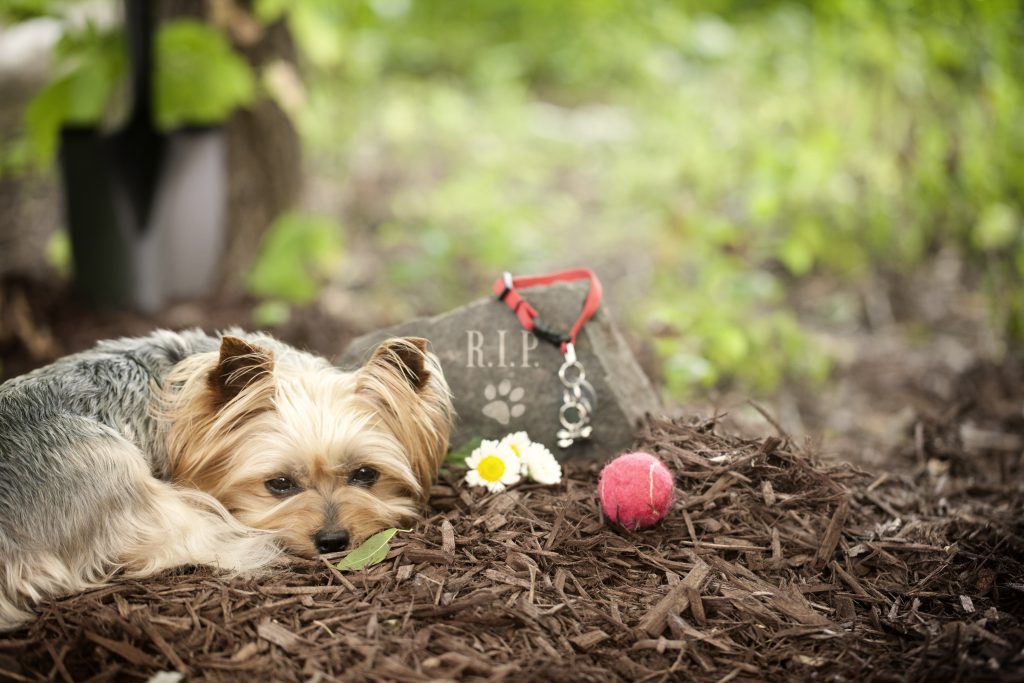Creating a Safe Space for Your Grieving Pet
 The departure of someone special shakes us to our very core – and the same is true for pets. Like us, animals experience sorrow and grief after the death of a beloved human companion or pet sibling. Since they can’t talk about their emotions or consciously journey through their sadness, it’s difficult to know how to help them feel safe and comfortable. Knowing what a grieving pet is going through can undoubtedly support the process and can even facilitate recovery and healing.
The departure of someone special shakes us to our very core – and the same is true for pets. Like us, animals experience sorrow and grief after the death of a beloved human companion or pet sibling. Since they can’t talk about their emotions or consciously journey through their sadness, it’s difficult to know how to help them feel safe and comfortable. Knowing what a grieving pet is going through can undoubtedly support the process and can even facilitate recovery and healing.
It’s Personal
Surviving animals grieve in very different, yet highly personal ways. Changes in behavior, personality, or habits are easily observed, and usual routines may be abandoned. While this is distressing, these are natural signs of a deeply grieving pet.
Compassion and Care
Inappetence is probably the most visible symptom of grief, but others can include:
- Clinginess or attention seeking
- Changes in vocalization (such as barking or meowing more or less than usual)
- Sleeping more or less than before
- Seeking uncharacteristic hang out places
- Wandering around, seemingly looking for the pet or human who has gone
- Less active, demonstrating a lack of interest in play or exercise
Fine Lines
Every mourning situation is different, but a grieving pet will react directly to one or more of the following:
- The passing of a loved one
- Change in household routine
- The emotional state of other animals in the household (cats mourn for other cats and other species and the same is true for dogs and other pets)
- The moods and energy levels of the humans who care for the pet
- The social structure between all animals in the household (e.g., other pets may feel confused when an alpha male passes)
Helping a Grieving Pet
Giving your pet time to adjust to the new social structure and routine will help facilitate a successful transition. It can take numerous months to develop a new sense of “normal” (this may or may not ever happen). Please be watchful of your pet’s behavior, and let us know if you observe social withdrawal or other worrisome signs, such as:
- Eating problems, particularly if your pet refuses food
- Vomiting
- Diarrhea
- Problems urinating or defecating
- Panic
- Depression
- Nighttime restlessness or insomnia
- Increased daytime sleeping
- Behavior reversal
Increase the time you spend exercising or playing with your pet, and try to establish a new consistent, predictable routine. Offer distractions, such as new toys, visits to different parts of town, or long car rides to get out of the house and away from the familiar.
Too Soon?
The sadness of your grieving pet may convince you to adopt a new playmate, but to be truly successful, your heart must be open to another pet. Too often, people in mourning adopt a pet before they’re ready, and it can result in a weakened bond.
Sometimes medical help is needed, and we encourage you to reach out to our veterinarians and staff. Your grieving pet feels the pain of sadness or even abandonment, but over time (and with your support), he or she will be able to enjoy the simple things in life again.


